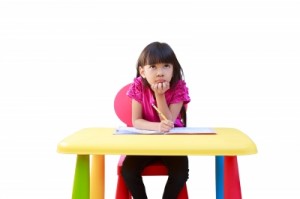This post is part of a series on what to expect in Nursery and Reception (the Early Years Foundation Stage). Yesterday we gave a brief overview of nursery; today we will look at the Early Learning Goals.
The Early Learning Goals are the main areas your child’s teacher will focus on during Reception and Nursery. They are divided into prime and specific areas. Today we will look at the Prime Areas and tomorrow we will look at the Specific Areas.
The Prime Areas
1. Communication and language
Listening and attention:
Children learn to listen attentively in a range of situations. They listen to stories, give their attention to what others say and respond appropriately, while engaged in another activity.
Understanding:
Children learn to follow instructions involving several ideas or actions. They answer ‘how’ and ‘why’ questions about their experiences and in response to stories or events.
Speaking:
Children learn to express themselves effectively, showing awareness of listeners’ needs. They use past, present and future forms accurately when talking about events that have happened or are to happen in the future. They develop their own narratives and explanations by connecting ideas or events.
2. Physical development:
Moving and handling:
Children develop good control and co-ordination in large and small movements. They learn to move confidently in a range of ways, safely negotiating space. They learn to handle equipment and tools effectively, including pencils for writing.
Health and self-care:
Children learn the importance for good health of physical exercise, and a healthy diet, and talk about ways to keep healthy and safe. They manage their own basic hygiene and personal needs successfully, including dressing and going to the toilet independently.
3. Personal, social and emotional development:
Self-confidence and self-awareness:
Children develop confidence to try new activities, and say why they like some activities more than others. They are confident to speak in a familiar group. They say when they do or don’t need help.
Managing feelings and behaviour:
Children learn to talk about how they and others show feelings, talk about their own and others’ behaviour, and its consequences, and know that some behaviour is unacceptable. They work as part of a group or class, and understand and follow the rules.
Making relationships:
Children learn to take turns with others. They take account of one another’s ideas about how to organise their activity. They form positive relationships with adults and other children.
These are the Prime Areas: together with the Specific Areas (literacy, mathematics, understanding the world and expressive arts and design), they make up the Early Learning Goals.
This document is an edited version of the Department for Education’s Statutory Framework for the Early Years Foundation Stage. All information is correct at the time of publication. The full framework may be accessed at http://tinyurl.com/87xmlhv.
Image courtesy of pat138241 / FreeDigitalPhotos.net



Pingback: What to expect in the Early Years Foundation Stage (Nursery and Reception): part one | Better Tuition